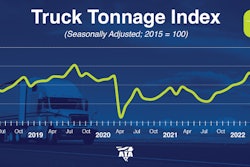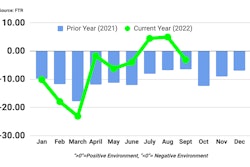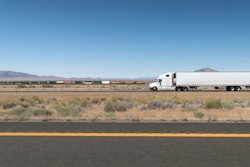A looming rail strike next month would send an aftershock through the trucking industry as the flow of goods via rail would need to be rerouted by truck – the capacity for which doesn't exist in large quantities.
Pangs felt first and foremost would be from the national fuel supply, including diesel exhaust fluid, said NATSO, the trade group representing the nation’s travel plazas and truckstops, and SIGMA: America’s Leading Fuel Marketers, the national trade association representing fuel marketers and convenience store chain retailers in the United States and Canada.
"If a work stoppage were to occur, it would immediately disrupt fuel marketers’ ability to ensure a reliable and stable supply of fuel for U.S. consumers and for the nation’s commercial fleets," Tiffany Wlazlowski Neuman, NATSO’s vice president of public affairs said via statement Monday. “A prolonged railroad shutdown will constrain the nation’s fuel supply by disrupting the availability of ethanol, which is often an essential component of gasoline and diesel exhaust fluid, which most heavy- duty trucks need to run. The U.S. economy in many ways revolves around transportation fuel, and if the necessary components to that fuel cannot get to where they are needed, the market impact will be drastic. The economic consequences will be catastrophic."
NATSO and SIGMA collectively called on Congress to intervene and "take aggressive action to resolve the ongoing labor dispute within the rail industry."
Twenty-seven trucking associations on Monday co-signed a letter to Speaker Nancy Pelosi, Majority Leader Chuck Schumer and Republican Leaders Mitch McConnell and Kevin McCarthy, beseeching Congress "be prepared to intervene before the end of the current 'status quo' period on December 9 to ensure continued rail service should railroads and four unions fail to reach a voluntary agreement."
Pelosi issued a statement Monday saying the House will proceed this week with legislation that adopts the tentative agreement reached between unions and railroads in September to avert a national rail strike, but "at the same time, Democrats are continuing to fight for more of railroad workers’ priorities, including paid sick leave."
The nation's largest rail union, SMART Transportation Division, earlier this month declined a contract proposal in part brokered by the White House, putting the potential of a national railroad strike back on the table next month. The U.S. narrowly avoided a strike in September, which experts said would send a shock though the supply chain rivaling a catastrophic weather event. SMART-TD could strike Dec. 9, or the rail carriers could lock out workers, unless Congress steps in. Rail unions have what is generally referred to as a "me too" agreement where the terms agreed to by the last holdout will trickle down to all the others, and if all 12 unions don't agree, then all 12 could potentially strike.
“Amid tight fuel supplies and low inventories, idled rail cars stand to introduce a massive disruption in the availability of these additives, exposing the fuel market to a marked decrease in supply from which it would not be able to quickly adjust," Wlazlowski Neuman said.
The rail industry last went on strike in 1991, a national work stoppage that lasted a day before Congress intervened. The following year, a walkout at USX by members of the International Association of Machinists spread nationally and lasted about two days before Congress, again, intervened.
Operating over a nearly 140,000-mile network in 49 states, the Association of American Railroads projects lost economic output due to a national rail shutdown could be more than $2 billion per day.
Did you miss our recent webinar: "2023 Outlook for Trucking"?
Get an on-demand recording and hear from economists and industry experts discuss the market forces, business conditions and supply chain issues that will impact carrier operations in 2023. This complimentary CCJ webinar was sponsored by Bestpass.
With a Dec. 9 strike deadline set, railroads plan to stop taking hazardous materials, including fuel, next week. In the days leading up to the Sept. 15 strike deadline, railroads began to deny service for perishable freight, hazardous materials and other types of cargo they didn’t want sitting unattended in the event of a work stoppage – clues that triggered a lot of calls to for-hire carriers and freight brokers, according to DAT.
A handful of states earlier this month and late last month, goaded by tight supply, issued emergency hours of service waivers for haulers of fuel but many of those have expired or will expire at the end of the month.
NATSO and SIGMA's sound of alarm comes at a time of falling fuel prices. Tom Kloza, global head of energy analysis at Oil Price Information Service (OPIS) noted to CCJ that diesel fuel on Monday saw a 61-cent wholesale price drop in the Chicago spot market, adding "it will manifest itself via some cheap deal numbers (Tuesday). Great news for the chains like Pilot, TravelCenters and Love's."
The average price of diesel fuel has fallen every week since Oct. 24, according to the U.S. Energy Information Administration, and fell 9 cents from last Monday to Nov. 28, settling at $5.141 per gallon – its lowest point since Oct. 3.
Kloza noted that the current OPIS/AAA U.S. gasoline price average of $3.546 per gallon is 15 cents per gallon higher than last year, but barring outside factors, "by Christmas Day, we expect a price that will be below last year's $3.29 per gallon number," he added.













